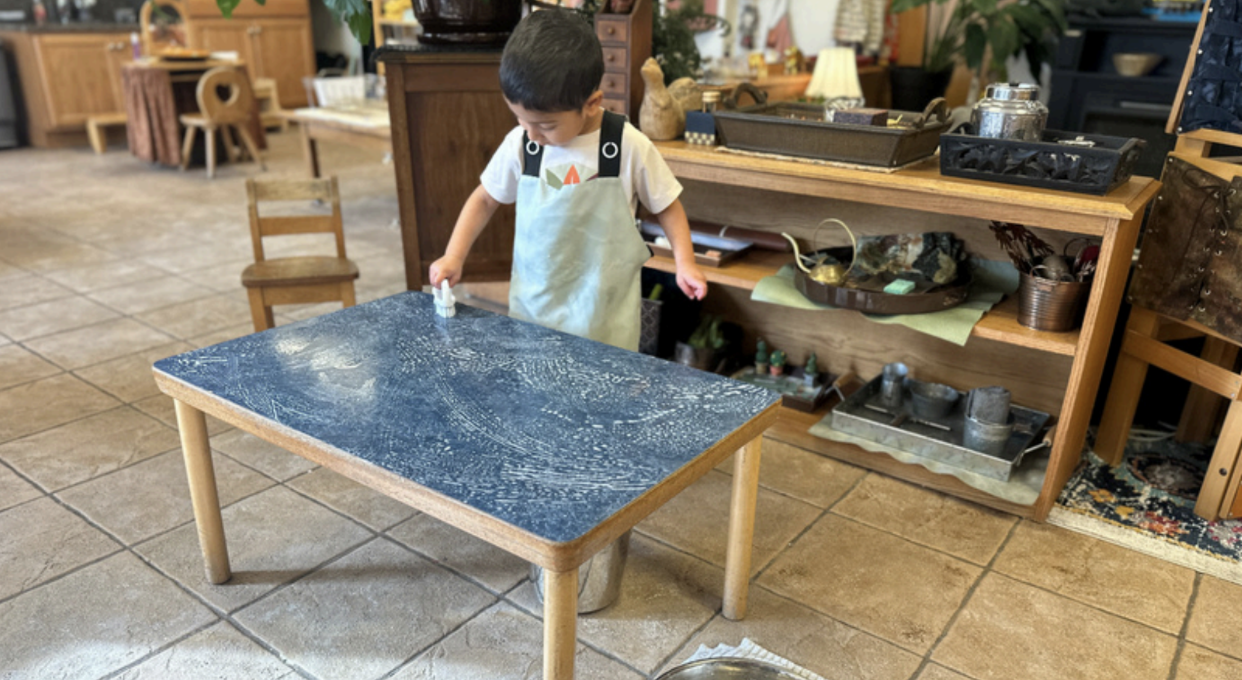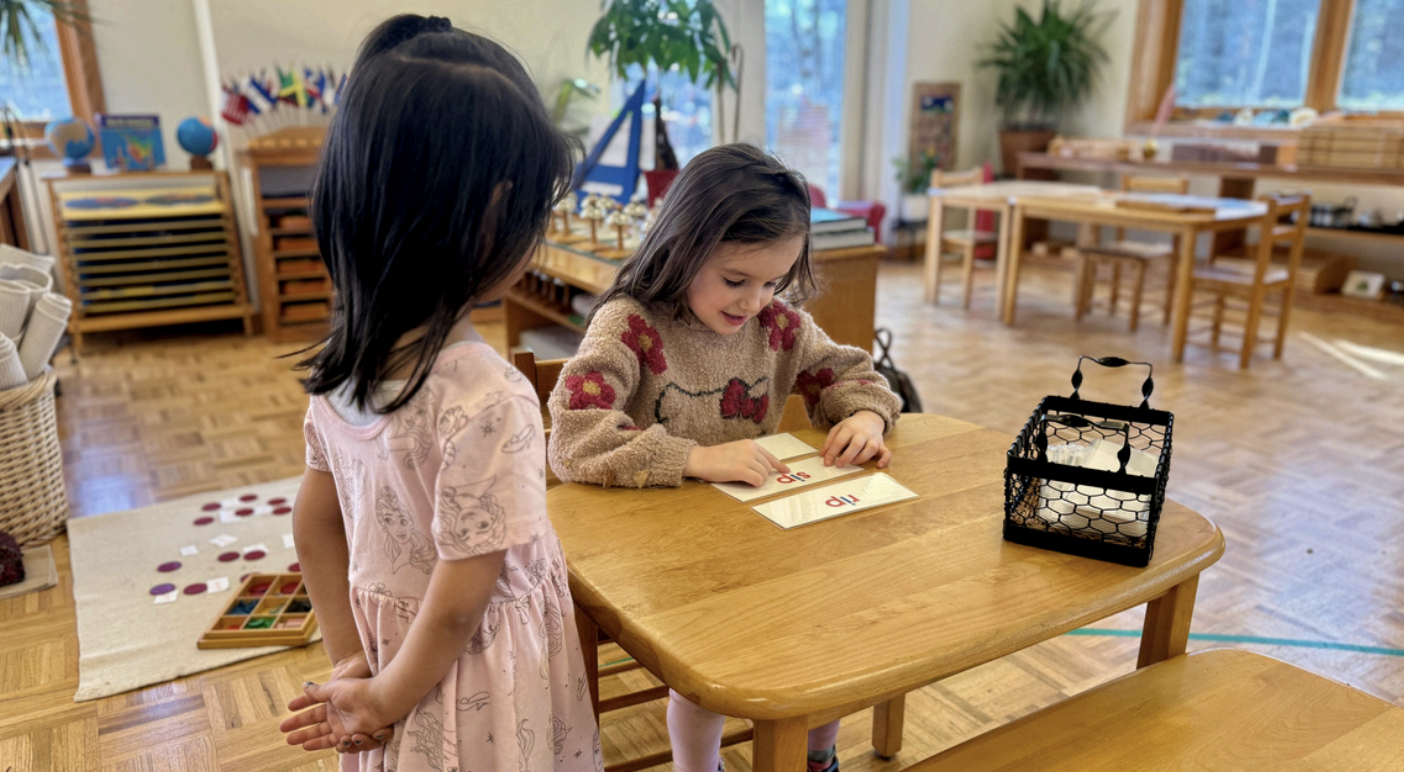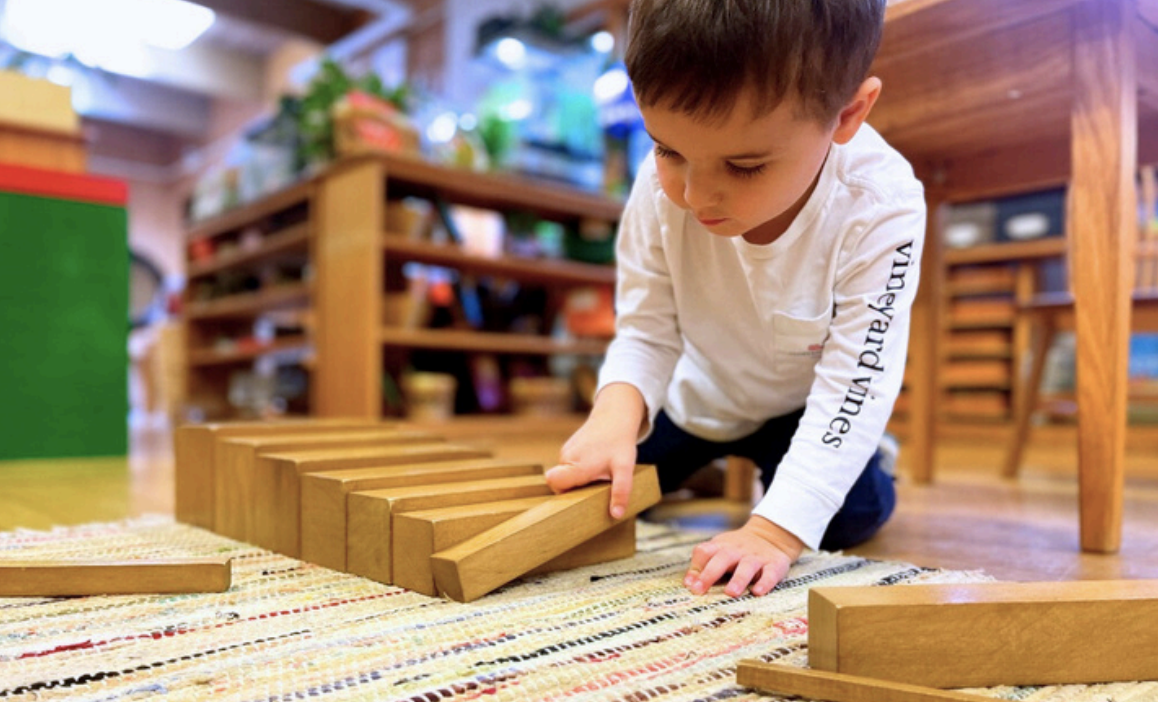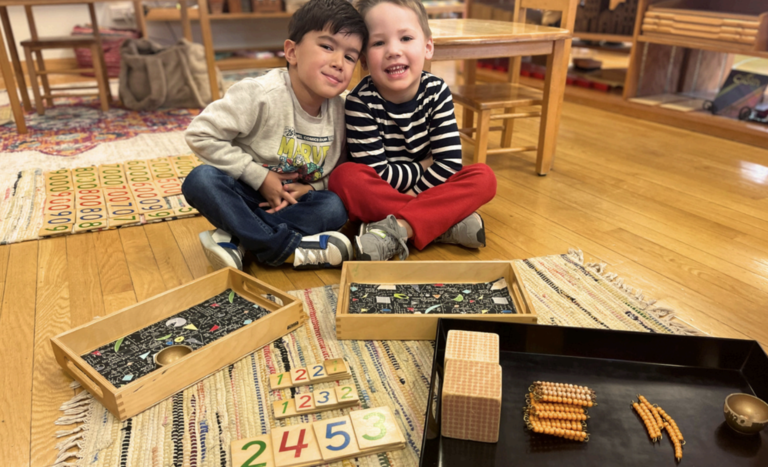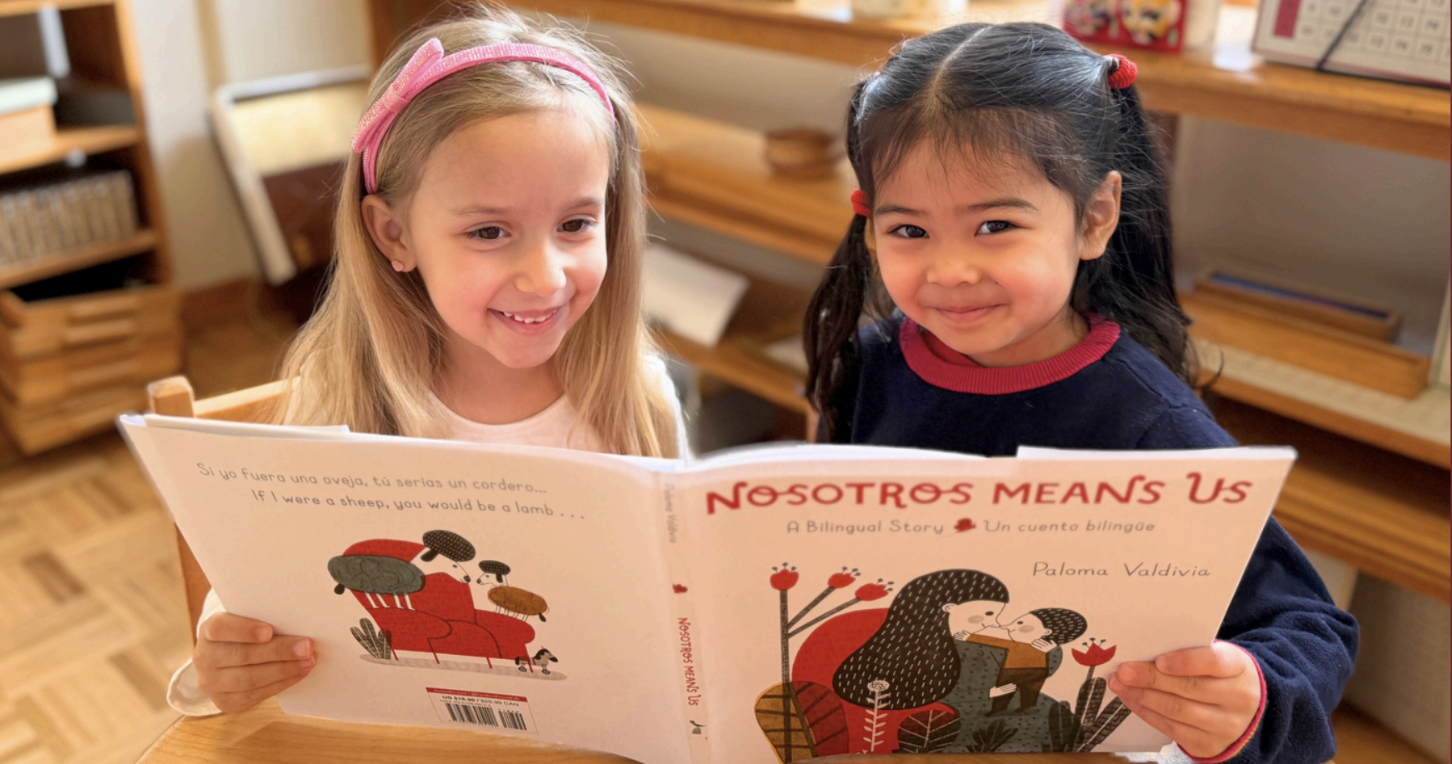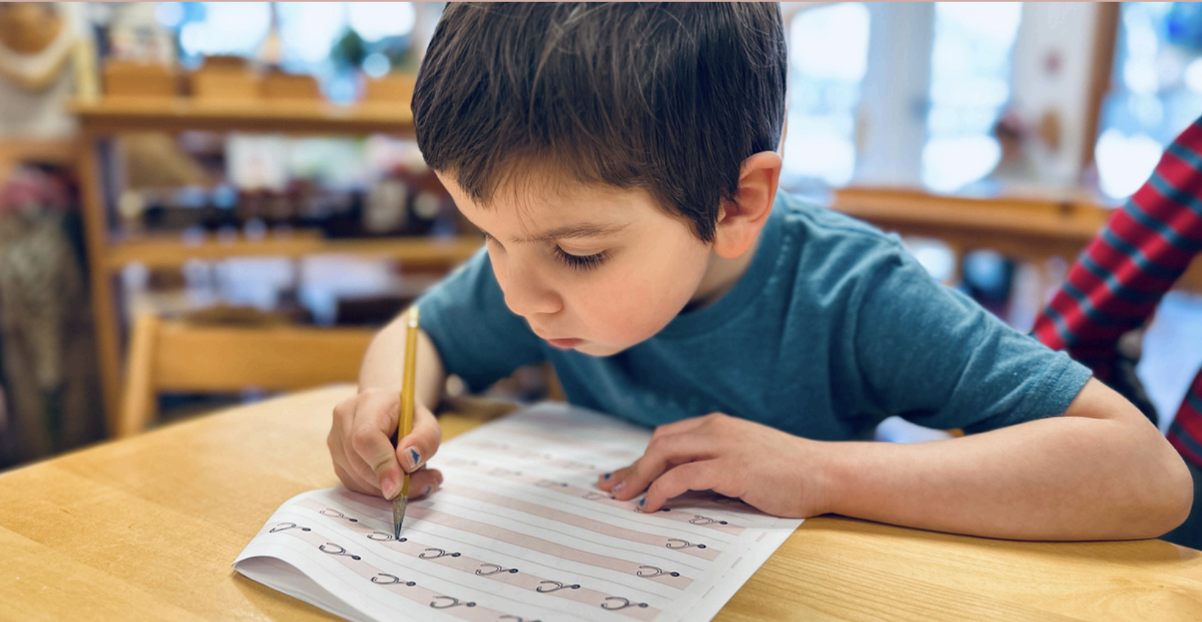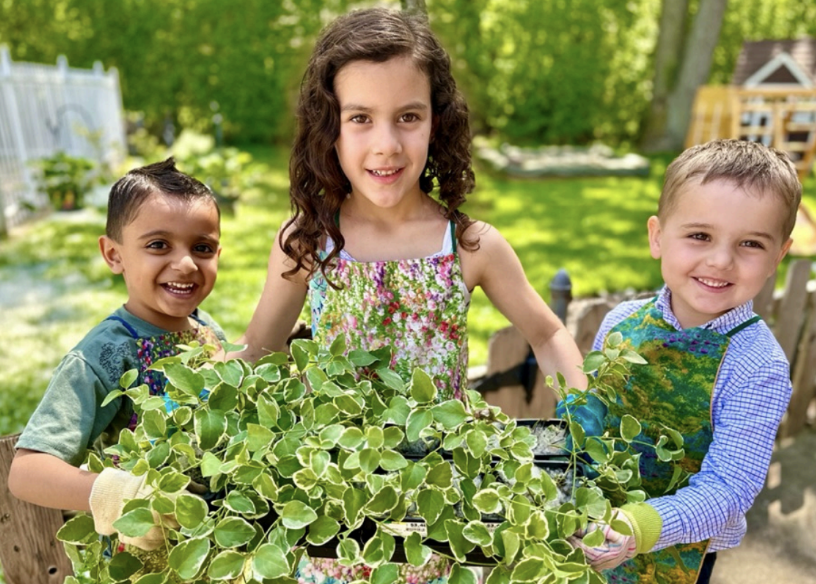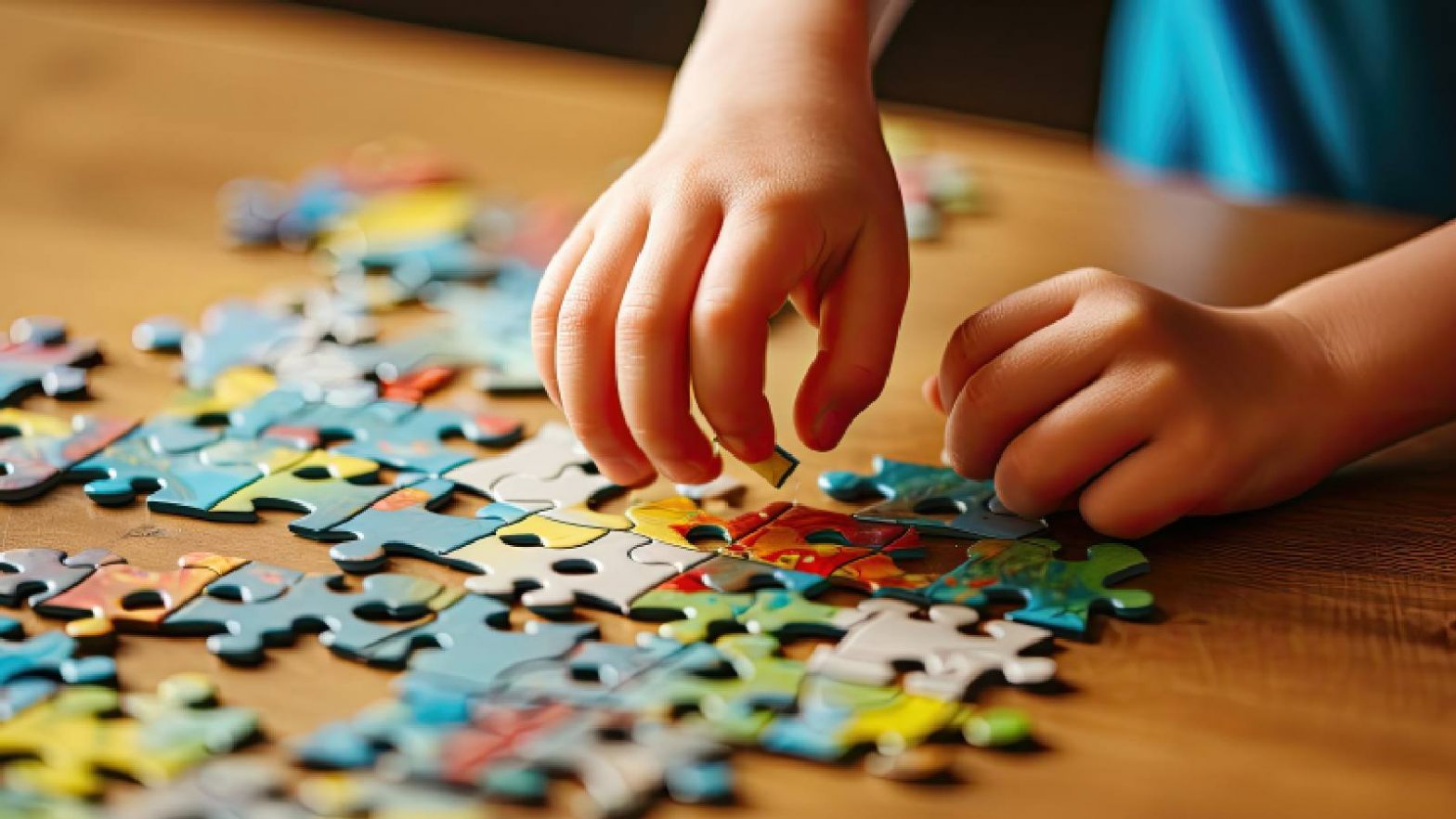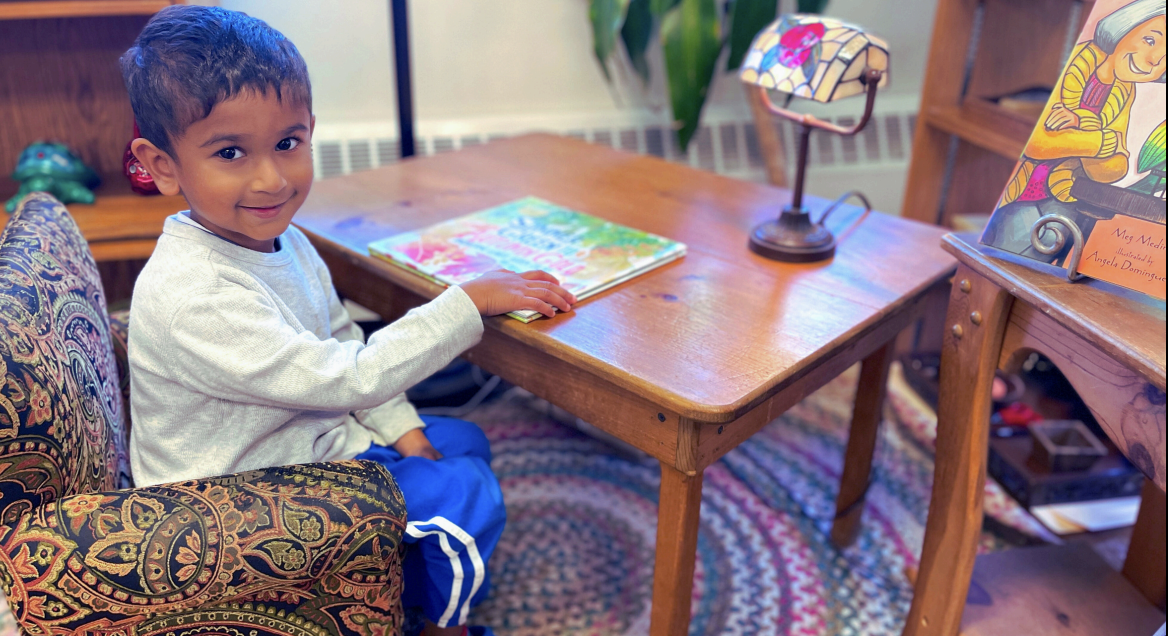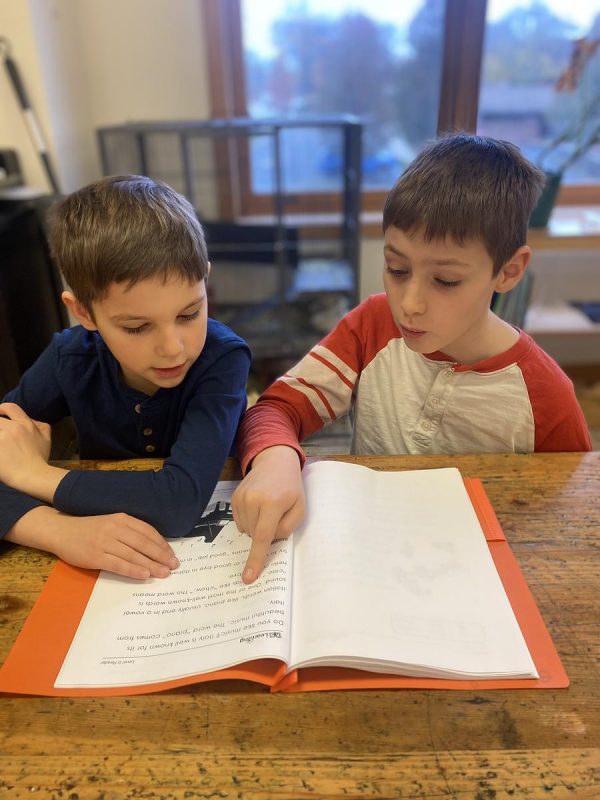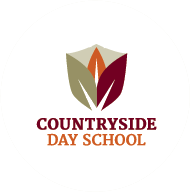Parents new to Montessori often ask, “Why is my child washing cloths at school?” or “What’s the purpose of all this polishing and scrubbing?” At first glance, practical life activities may seem simple—even mundane. But in a Montessori classroom, they are deeply intentional, serving as the foundation for a child’s development across many areas.
Dr. Maria Montessori observed that young children are naturally driven to engage in real, purposeful work. They want to imitate... READ MORE
In a Montessori classroom, the lessons that shape us into socially adept adults begin in the simplest ways — through Grace and Courtesy. These are not just "nice" extras; they are essential life skills that form the bedrock of how we relate to others, solve problems, and engage with the world.
One of the first Grace and Courtesy lessons a child receives is how to observe another at work with respect. Imagine a classroom... READ MORE
Sensorial materials are the heartbeat of a Montessori classroom. Designed to refine a child's senses, these materials allow young learners to explore their environment through sight, sound, touch, smell, and even taste.
Key Examples:
The Pink Tower: Ten cubes of varying sizes that build an intuitive sense
of dimension.
The Broad Stair: A series of wooden prisms that introduce concepts of
length and weight.
Sound Boxes: Paired objects that help distinguish different sounds.
... READ MORE
Many students memorize math procedures without true understanding, relying on
rote learning rather than comprehension. Without visual references, concepts like
borrowing in subtraction feel abstract and confusing. Students follow steps mechanically, often avoiding difficult operations or relying on calculators when allowed.
The Golden Bead material, often presented at 4 years old, provides a hands-on way
to grasp math concepts, using concrete representations of numbers—single beads
for units, ten bars for tens, and so on.... READ MORE
As parents, we get one chance—one precious opportunity—to guide our children through their early years. These formative years are not just a phase; they are the foundation upon which a lifetime of learning, confidence, and character is built.
At Countryside, we see firsthand the profound impact of early education. Research consistently shows that the first six years of life are the most critical for brain development. This is when curiosity flourishes, independence takes root, and... READ MORE
Why Cursive: The Benefits for Early Development
Montessori education prioritizes teaching cursive over print for several developmental reasons. Cursive writing encourages fluid, continuous motion, which helps children develop fine motor skills more naturally than the separate strokes required in print writing. This connection of letters also promotes smoother and faster writing, reducing frustration and
supporting legibility.
The Montessori method focuses on the link between physical movement and cognitive development, and cursive’s flowing nature... READ MORE
The three-year cycle in Montessori education is a foundational aspect of the method, promoting holistic development in children. Here’s a breakdown of how it achieves this:
Building Community
By remaining with the same teachers and classmates for three years, children develop strong relationships, fostering a sense of belonging and security. This stable environment helps them feel valued and supported, which is essential for their emotional growth.
Encouraging Collaboration
In a mixed-age classroom, children... READ MORE
As parents, you may already be aware of the tremendous benefits of a Montessori education — the hands-on learning, the focus on independence, and the development of a lifelong love of learning. But there’s one year in the Montessori program that holds exceptional value: the kindergarten year.
Montessori classrooms are designed as a three-year cycle, and the final year, often referred to as "kindergarten" or "the third year," is crucial for your child’s development.... READ MORE
Starting Early: Why Reading to Your Child Matters
Reading to children from infancy is incredibly important for their cognitive, emotional, and social development. Even at a very young age, babies begin to absorb language through the rhythm, tone, and cadence of their parents' voices. Early exposure to books helps develop essential skills like listening, vocabulary, and comprehension.
As children grow, hearing stories stimulates their imagination, encourages curiosity, and fosters a love for learning.... READ MORE
Many parents first encounter Montessori in preschool, but the method extends far beyond the early years.While Montessori’s early childhood approach emphasizes independence and self-directed learning, Montessori Elementary builds on these foundations, fostering creativity, critical thinking, and social skills in children ages 6-12.
What’s Different in Montessori Elementary?
Multi-Age Communities: Children in grades 1-3 (Lower Elementary) and grades 4-6 (Upper Elementary) work together, allowing for social growth, peer mentorship, and individual learning paces.
Child-Led... READ MORE
Countryside Programs
We offer a continuous program from 16 months through 6th grade — inculding an all year program option for Pre-K/K and elementary school. LEARN MORE
TODDLER — Ages 16 mos.-3yrs
PRE-K/K — Ages 3-6
LOWER ELEMENTARY — Ages 6-9, Grades 1-3
UPPER ELEMENTARY — Ages 9-12, Grades 4-6
SUMMER PROGRAMS — Ages 16 mos.-12 yrs., Toddler-Grade 6
ALL YEAR FULL DAY — Ages 3-12, Grades Pre-K/K-Grade 6
